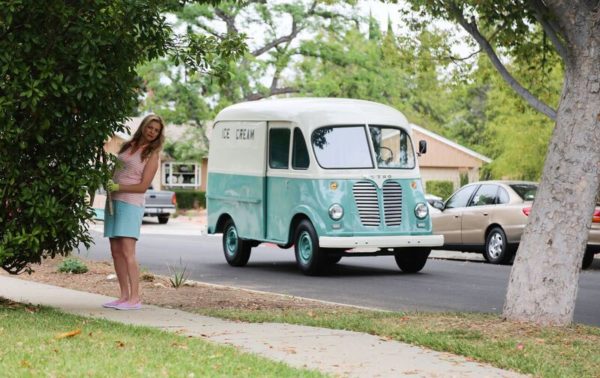Flavorless, by Jim Rohner
14 Aug
I moved to the city from the suburbs over three years ago and in that time I’ve not only become accustomed to the cacophony of voices and viewpoints that imminently result from so many cultures, religions, and philosophies living likely in too condensed of a geography, but I’ve also become fond of it; so fond of it, in fact, that at this point in my life the prospect of returning to the homogeneity of the admittedly quieter and more spacious suburbs fills me with a sense of existential dread and horror.
Anyone who’s familiar with Sam Mendes knows that I’m not the first creative type to have a healthy dose of skepticism of the land of backyards and white picket fences, but it’s those of us who love horror that realize that the genre has been digging up skeletons – both literal and metaphorical – in those yards for decades. Before even Freddy Krueger or Michael Myers were shredding suburbanites to bits, Rod Serling was telling us all that the civility and idealism of the suburbs were all just an illusion in “The Monsters Are Due on Maple Street.” Art has seemed to come to the consensus that there’s something askew about existing in that middle ground between the urban and the rural.
It’s this middle ground in which The Ice Cream Truck takes place, a horror film from writer/director Megan Freels Johnston that sees Mary (Deanna Russo) holding down the fort of a mostly empty house in non-descript suburbia while she waits for her husband and kids to complete the relocation from Seattle. A freelance writer, Mary has made the cross-country move reluctantly, only doing so because of her husband’s job. While she awaits the arrival of both her family and her furniture, Mary attempts to familiarize herself with the neighborhood, joking that she’s got plenty of time “to get in trouble” while finding herself alone for the first time in 12 years.
Though the sun is always shining and the neighbors are always smiling, signs point to plenty of trouble to be found be it from the college-bound Max (John Redling), who has more than a friendly interest in Mary or the passive-aggressive behavior of veneered neighbors like Jessica (Hillary Barraford) and Christina (Lisa Ann Walter). There’s also that unusual ice cream truck and driver (Emil Johnsen) that seem to come straight from the 1950s and only seem to appear at the most temporally inappropriate times…
The gist of many horror films that take place in the suburbs is “things are not as they appear,” a mantra that sadly, cannot be applied to The Ice Cream Truck, a film whose veneer is just that – a thin layer of superficiality that reveals only banality beneath. The film could perhaps be forgiven for its rote dialogue and wooden performances if they were pointing towards some Blue Velvet-esque unearthing of societal ills, but subtext that one would assume is introduced to explore such paths (the graduation party where every responsible adult has allegedly been drunk for hours, comes to mind) is overshadowed by the blatant declarations both textually and aesthetically of “the suburbs are weird.”
Driving home this point (no pun intended), is the titular ice cream truck, which one would assume is supposed to be the symbol that ties together both the literal and thematic horror of the story. The ice cream man is emotionless and speaks in a monotone drawl, claiming himself to be a “purist” when it comes to the absence of newfangled ice cream bars and flavors, all of which signal him as an oddity in this otherwise bright environment, but not for the reasons the film would intend. While his presence is undoubtedly meant to chill viewers and ominously signal death and unpleasantness, he stands apart simply and frustratingly because his presence in the film is utterly unconnected narratively to any person, place, or thing in the film’s world, making it seem like his inclusion is a half-baked afterthought introduced from an entirely different film, a thought further reinforced by a nonsensical twist ending that is supposed to make us re-examine everything we just watched, but instead makes us rethink why we were put through it in the first place.
Not helping matters are the fact that the nocturnal murders are too evenly lit and too simplistically staged, robbing the tried and true genre elements from any sense of tension or dread. Without this build up, there’s no payoff or satisfaction to the imminent protagonist vs. antagonist showdown, though that’s assuming there would be any to find were it not for the film thoroughly convincing us for a number of reasons that Mary deserves neither respect nor sympathy. This approach to our protagonist could be intentional, furthering a thesis that seems to say “the suburbs are bad for you”; the problem is that thesis has been laid out and supported many times before in far more effective ways.
The Ice Cream Truck will be released theatrically and on VOD on August 18th.




No comments yet